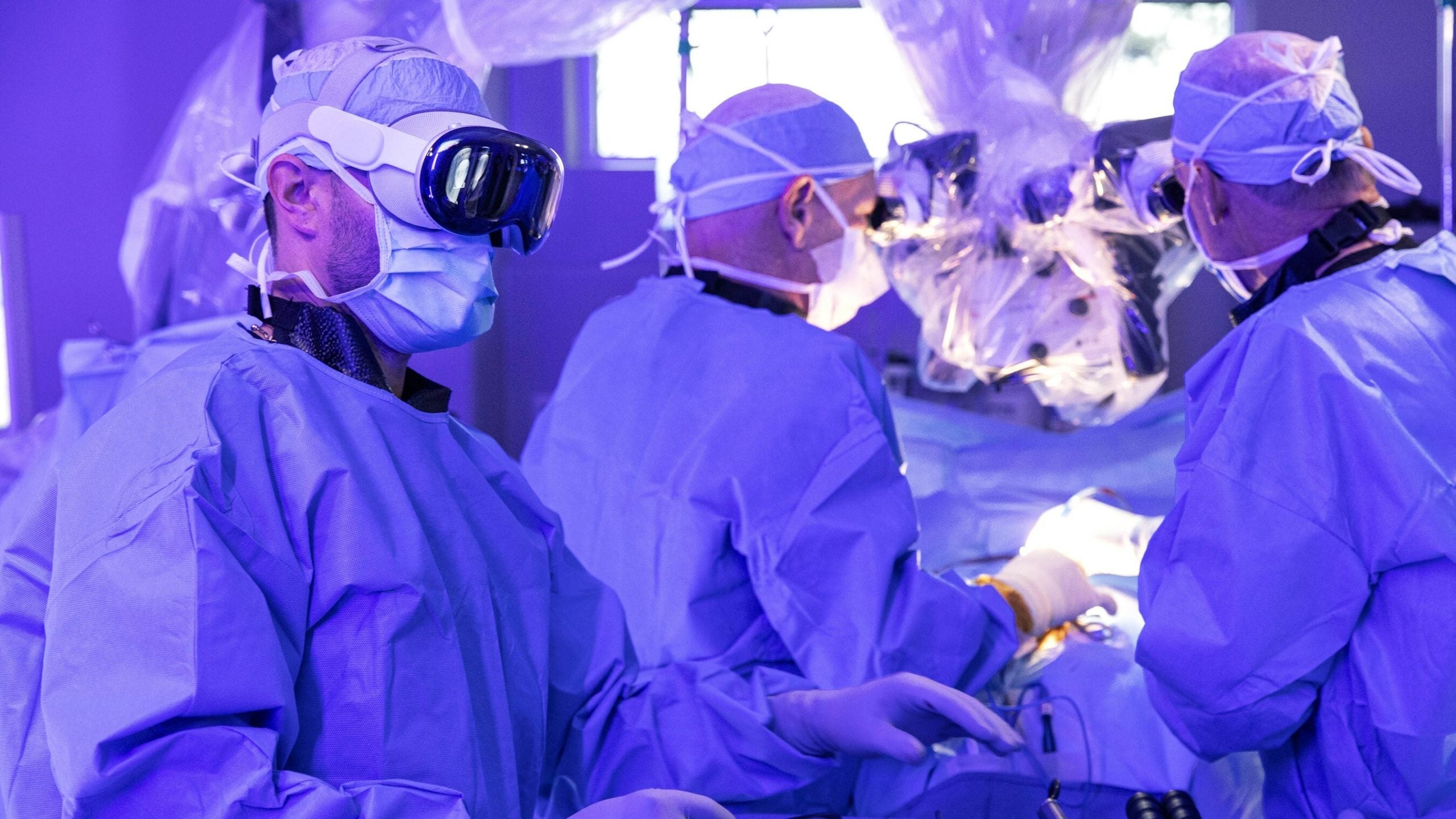
The release of Apple Vision Pro has catapulted extended reality (XR) technology back into the spotlight, following a previous cross-sector lull in conversation around augmented reality (AR) and virtual reality (VR) innovation.
According to a July 2023 GlobalData report: “XR is poised to revolutionize training, design, engagement, collaboration and entertainment, ushering in transformative changes across industries and refining the quality of human interactions.”
These “transformative changes” could soon be evident in the medical sector, as XR technology looks set to be integrated into surgical procedures. Last week, a collaboration between eXeX and neurosurgeon Dr Robert Masson saw the Apple Vision Pro enter the operating room for several spine reconstruction surgeries. Although only used as a logistics and organisational tool at this stage, a newly published briefing by disruptive technology analyst Sourabh Nyalkalkar speculates that the technology could soon become an integral part of procedures.
“Analyzing XR technologies in the healthcare sector using the Technology Foresights platform, it is evident that innovations in AR and VR for surgical applications and eyecare are likely to see wider adoption in the near term,” argues Nyalkalkar.
“The Surgical AR/VR innovation, specifically dealing with the integration of XR technologies into surgical procedures – for instance, superimposing computer-generated images or information onto a surgeon’s view, providing real-time visual guidance and enhanced awareness during surgery, shows higher innovation activity compared to other healthcare innovations within this space.”
How well do you really know your competitors?
Access the most comprehensive Company Profiles on the market, powered by GlobalData. Save hours of research. Gain competitive edge.

Thank you!
Your download email will arrive shortly
Not ready to buy yet? Download a free sample
We are confident about the unique quality of our Company Profiles. However, we want you to make the most beneficial decision for your business, so we offer a free sample that you can download by submitting the below form
By GlobalDataThe potential behind Apple Vision Pro has breathed new life into an industry plagued by scepticism. A GlobalData survey conducted in November 2023 found that 71% of respondents considered AR to be ‘hyped’, with only 20% predicting that the technology would ‘live up to all its promises’.
Yet some startups persevered with medical-based innovation in the XR sector. Nyalkalkar identified Synaptive, XACT Robotics and CMR Surgical as leaders within XR in surgical robotics, an area which he considered “a vibrant ecosystem with intense innovation and competitive dynamics”.
Other potential uses for XR include surgical intelligence for hospital efficiency, an area being explored by Theator, which uses AI automation to analyse pre-op, intra-op and post-op data, and offer patient-specific insights to surgeons. Elsewhere in neurosurgery planning, Australia-based Omniscient is creating digital maps of the brain to inform the neurosurgical and psychological fields.
Innovation around the potential of XR in medicine has been fuelled by consistent interest from investors: in 2022, GlobalData recorded a total of 366 deals made in the sector, worth $5.4bn. In 2023, XR startups secured funding from investors including RedBird Capital Partners, Hyundai Mobis and SPARX Asset Management.
Despite only 37.5% of survey respondents feeling that they ‘fully understand’ AR, the recent advancements in the sector paint a bright future for the technology. Apple Vision Pro has put XR technology centre-stage, and its potential in the medical field means it could stay there.
Nyalkalkar concluded: “The future of medical AR/VR appears to be promising, emphasizing the importance of a measured and thoughtful approach in this dynamic field.”





